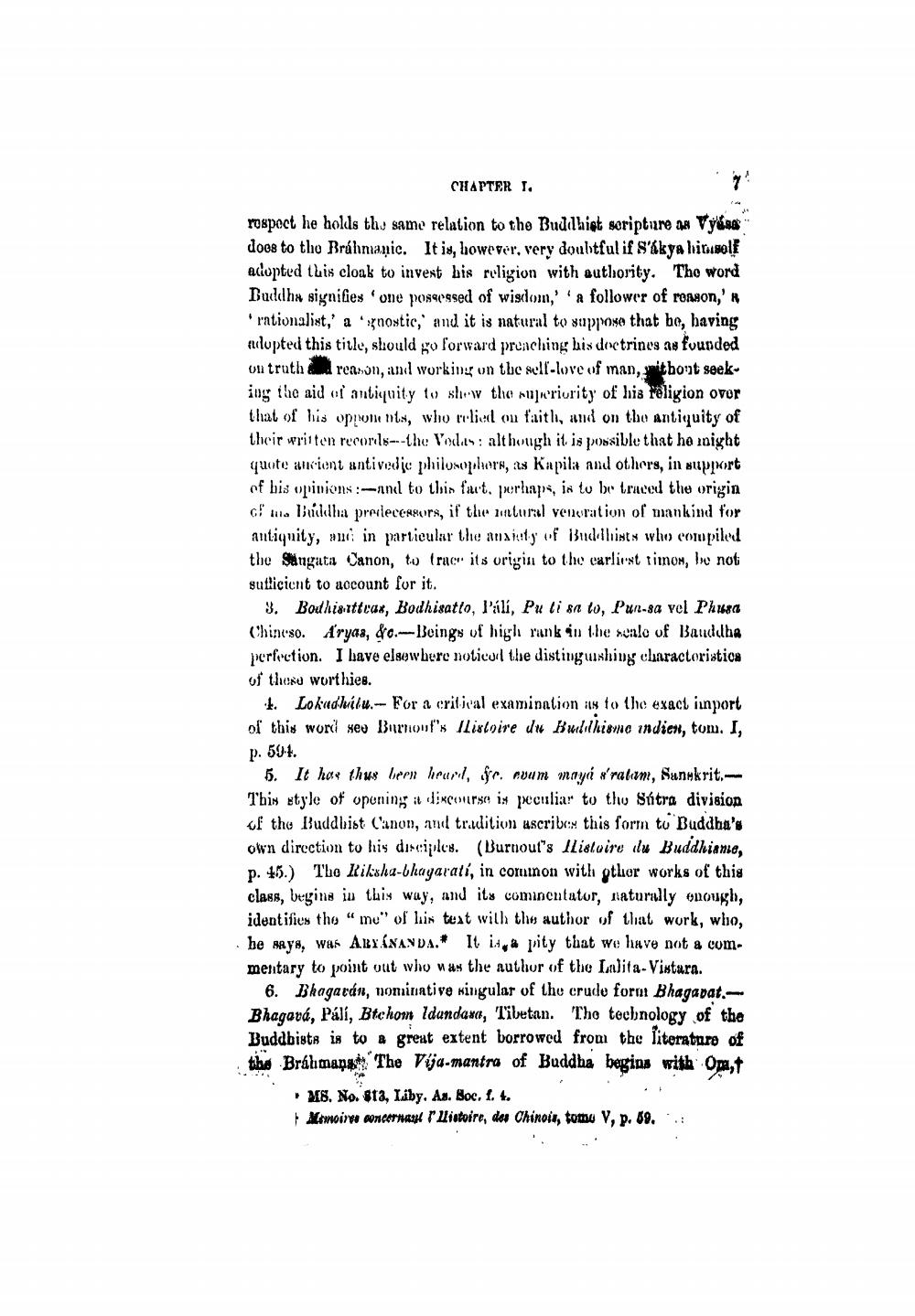Book Title: Lalit Vistara Author(s): Rajendralala Mitra Publisher: Asiatic Society View full book textPage 9
________________ CHAPTER I. 4 rospect he holds the same relation to the Buddhist scripture as Vysa does to the Brahmanic. It is, however, very doubtful if S'ákya himself adopted this cloak to invest his religion with authority. The word Buddha signifies 'one possessed of wisdom,' a follower of reason,' a ' rationalist,' a 'gnostic, and it is natural to suppose that he, having adopted this title, should go forward preaching his doctrines as founded on truth reason, and working on the self-love of man, without seeking the aid of antiquity to show the superiority of his religion over that of his opponents, who relied on faith, and on the antiquity of their written records--the Vodas: although it is possible that he might quote ancient antivedje philosophers, as Kapila and others, in support of his opinions and to this fact, perhaps, is to be traced the origin of a Buddha predecessors, if the natural veneration of mankind for antiquity, and in particular the anxiety of Buddhists who compiled the Sangata Canon, to trace its origin to the earliest timos, be not sufficient to account for it. 3. Bodhisattvas, Bodhisatto, l'álí, Pu ti sa to, Pun-sa vel Phusa Chineso. Aryas, &c.-Beings of high rank in the scale of Bauddha perfection. I have elsewhere noticed the distinguishing characteristics of these worthies. 1. Lokadhibu. For a critical examination as to the exact import of this word see Burnouf's Histoire du Buddhisme indien, tom. I, p. 594. 5. It has thus been heard, &c. evum mayá s'ratam, Sanskrit.This style of opening a discourse is peculiar to the Sútra division of the Buddhist Canon, and tradition ascribes this form to Buddha's own direction to his disciples. (Burnout's Ilistoire du Buddhisme, p. 45.) The Riksha-bhagaratí, in common with other works of this class, begins in this way, and its commentator, naturally enough, identifies the "me" of his text with the author of that work, who, he says, was ARYANANDA. It is a pity that we have not a commentary to point out who was the author of the Lalita-Vistara. 6. Bhagaván, nominative singular of the crude form Bhagavat.Bhagavá, Pálí, Btehom Idandara, Tibetan. The technology of the Buddhists is to a great extent borrowed from the literature of the Brahmana The Vija-mantra of Buddha, begins with Om,† MS. No. 813, Liby. As. Boc. f. 4. ▷ Memoires concernant l'Histoire, des Chinois, tome V, p. 59.Page Navigation
1 ... 7 8 9 10 11 12 13 14 15 16 17 18 19 20 21 22 23 24 25 26 27 28 29 30 31 32 33 34 35 36 37 38 39 40 41 42 43 44 45 46 47 48 49 50 51 52 53 54 55 56 57 58 59 60 61 62 63 64 65 66 67 68 69 70 71 72 73 74 75 76 77 78 79 80 81 82 83 84 85 86 87 88 89 90 91 92 ... 292
